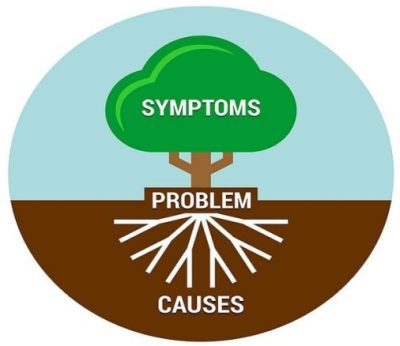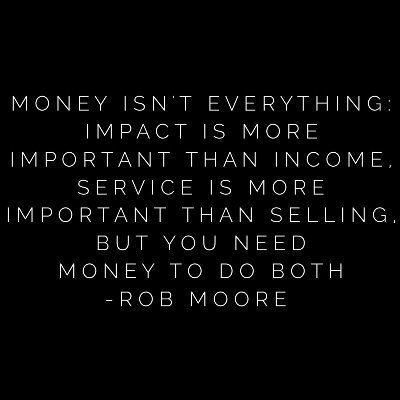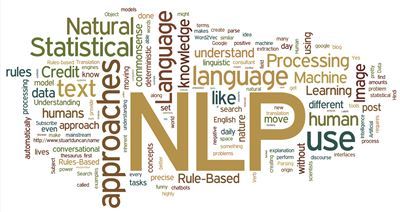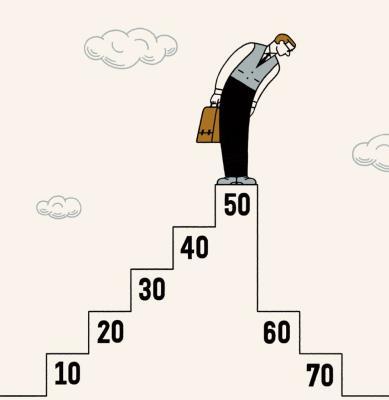Jeremie Averous's Blog, page 38
October 3, 2019
How Important It Is to Understand the Root Causes Before Treating the Symptoms
This post is written in the context of business for professional services, but of course the title applies more widely. Nevertheless, it is an essential aspect to be considered because as consultant we are often contacted because of some symptoms that have been noticed. And we should seek to understand the root causes before jumping into solely treating the symptoms.

Understanding the root causes often requires to take a more systemic view of the organization or the situation, looking in some details at all relevant aspects to identify if the symptom is isolated or only revealing a deeper issue. This should be the first step of the intervention, what I call the ‘discovery phase’. And it is essential that it is addressed in the most comprehensive manner so as to identify and treat the relevant root cause.
The ‘systematic’ approach here is essential as in any complex system: it needs to be considered in its entirety including the interfaces and relationships with external stakeholder to allow to identify the root causes.
In the past months I have been continuously amazed, as we have made this approach more systematic, at how we uncover root causes that are unexpected but relevant – requiring a lot of discussion with our clients.
This approach is not always understood even from clients who want a ‘quick fix’ solution, but that should be part of our ethics as professionals not to allow to just put a band-aid on a situation, but have a wider view of its causes. It is in any case absolutely essential for the sustainability of any change we intend to bring in the client organization’s or way of working.
It also applies in coaching situation and any situation of dysfunction: take the time at first to carefully assess the situation of its root causes so that you can treat the issue at its root.
This post is a follow-up from the post ‘ Useful Lessons Learnt for the Professional Services Business ‘ based on Pamela Slim’s post ‘ 23 Lessons from 23 years in business ‘.

October 1, 2019
How We Should Prioritize Impact over Income in Professional Services Businesses
While the title of this post is a bit provocative, I am convinced that it is essential in professional services businesses to ensure to have sufficient professional impact. Beyond the fact that it should be the essential objective, it is an essential condition for sustainable success – and hence income. And this should be a priority, which means that a number of activities must be undertaken that generate impact even with low or limited income.

Of course income is important but it should be viewed as a means to generate impact. And success means more income, that allows to generate even more impact.
Impact is an essential pre-condition to be noticed and respected as a competent contributor. It must hence be publicized for a large part (which may sometimes be difficult in services of a confidential nature – in that case some general publications are needed). It is also essential to provide clients with sufficient confidence to hire our services and have some idea of the benefits they can expect.
And finally, what are we here for if it is not to generate impact, if possible much, much larger than the cost of our services? And develop ourselves and our business to generate even more impact? The impact we should seek should also of course be ethically positive impact, i.e. provide our clients with tangible, positive and ethical benefits.
I encounter too many professional services professionals that don’t prioritize sufficiently impact and prefer to seek income. This is not a sustainable proposition, and they miss the point of providing this type of services. Let’s prioritize impact more consciously in our daily activities!
This post is a follow-up from the post ‘ Useful Lessons Learnt for the Professional Services Business ‘ based on Pamela Slim’s post ‘ 23 Lessons from 23 years in business ‘.

September 26, 2019
Useful Lessons Learnt for the Professional Services Business
I love this post by Pamela Slim ‘23 Lessons from 23 years in business‘, because it resonates with my experience while providing a useful perspective. Of course it is mainly applicable to professional services such as coaching and consulting, although after consideration, its relevance is actually quite far reaching. I really recommend the short read.

Here are some of the lessons that resonate the most with me:
we often don”t know but we have the find out attitude (through the depth of our network or reference basis)the importance of professional ethics – any lapse will catch up laterbe conservative on the financial side and on the commercial expectations to survive on the longer termit’s actually more work and pain than you’d expect first!seek impact rather than incomethe importance of the client in our success and developmentthe need to look for root causes instead of going straight for the symptoms brought to our attention initially by the client
In some follow-up posts, the last three specific topics will be developed further because I believe they are so important.

September 24, 2019
How Natural Language Processing Still Has Strong Limitations
I am getting quite interested these days about Artificial Intelligence (AI) and its actual applications. Most is about Deep Learning of course, and an essential element is Natural-Language Processing (NLP) or making sense for the machine of texts or words. This is an essential first stage to allow the machine to then perform statistical analysis of the data and produce all sorts of useful analysis.

I observe that NLP now performs very well in fields where expression is quite standardized and normalized, such as in legal or scientific fields. In particular, applications of AI to legal aspects is really becoming amazing. However, it still has limitations when it comes to analyzing informal correspondence and longer texts. This makes it harder to use AI to make sense of informal messages and data and to use those datasets as a basis for further analysis.
Of course it has improved substantially in the last months and years as any user of Google Translate or equivalent can witness: translations are now more to the point thanks to AI. Still it does not appear to be sufficient to deal with large sets of informal exchanges such as messages, email and other informal communication channels.
When this aspect will be overcome – which will take time and may not be immediately transferable between languages – the power of AI will be much more visible and dramatic than it is now. Let’s watch for progress in this area!

September 21, 2019
How the Number of Taxis and Hire Cars Drivers Have Tripled
According to this Quartz post ‘More Americans are Driving Taxis Thanks to Uber and Lyft‘, the number of drivers for taxis and other hire cars has apparently tripled in the past few years in the US. This is consistent with the increase in cars in city centers (see previous post ‘How Changes from New Technology Will Lead to Unexpected Results‘)

This shows certainly that there was an un-served demand with the traditional taxi system for point-to-point ground transportation. At the same time it does ask questions as to the actual revenue of all those drivers (some are of course now part-time with the likes of Uber and Lyft); and about what they will become if autonomous driving becomes successful, which it will effectively some day.
This example is excellent because it definitely shows how internet can disrupt the traditional economy (taxi plates’ value has dropped off significantly); create abundance where there was an artificial constraint; give opportunities for revenue to more people including additional side revenue, and more generally promote self-entrepreneurship. At the same time it also draws attention to the social consequences that ensue in terms of limited social protection for the drivers. A tripling of numbers make private hire car drivers a substantial percentage of workers and there are long-winded consequences to be expected.
The Fourth Revolution tangibly changes our world, our careers and opportunities. And not marginally!

September 17, 2019
How We Should Not Separate the Person from the Problem in Negotiation
The ‘Harvard’ way of negotiating advises to separate the person from the problem. It appears it is possibly not the most effective way of negotiating and that negotiating on an emotional basis may be more effective. I really recommend reading the book ‘Never split the difference: negotiating as if your life depended on it‘ by Chris Voss, which is extremely enlightening. Chris Voss is a top FBI negotiator with international exposure who has become something of an authority in the field of negotiation.

His basic observation is that emotional work is more important than rational approach in negotiation. However, “Until recently , most academics and researchers completely ignored the role of emotion in negotiation . Emotions were just an obstacle to a good outcome , they said . “ Separate the people from the problem ” was the common refrain“. Since the early 2000s this view is shifting, albeit quite slowly.
Good negotiators create emotion, are excellent active listeners, and label emotions to move forward to resolution. Again, this shows how in our modern world rational approaches find their limits in the real world (see previous post ‘How We Need to Consider Heartset as well as Mindset‘).
In negotiations as in other aspects, emotional work is the key to success. Let’s never forget the personal connection and emotional work is needed in all situations even in the most tense like a touch negotiation.

September 14, 2019
How We Need to Consider Heartset as well as Mindset
Robin Sharma makes the point that when it comes to personal leadership or change, mindset is clearly not everything. We also need emotion, or what can be covered by heartset.

As we move progressively away from the rationalism, foundation of the Industrial Age, the mobilization of emotions become visibly increasingly important in terms of success and differentiation. And it thus comes down to developing one’s own heartset in parallel of one’s mindset.
What is a heartset? According to wikipedia, mindset is “a set of assumptions, methods, or notations held by [a person]” – and it defines how we respond to an event or an action. Accordingly, heartset could be defined as a set of emotions and emotional states held by a person, that define how we respond emotionally to situations.
Your mindset is important, and you should also consider developing your heartset. Emotional work is a decisive skill in the Collaborative Age.

September 12, 2019
How Small Groups Can Now Bring Change Even Inside Large Organizations
It is well known that “A small group of thoughtful people could change the world. Indeed, it is the only thing that ever has” (Margaret Mead). It would seem this also applies from within large companies such as Google or Amazon, as explained in this interesting post ‘Small Groups United by a Shared Purpose are Changing Big Tech Companies. Here’s How‘.

The examples developed are how a group of Google employees have successfully raised the issue of the company getting involved in defense program; and how Amazon employees have pledged the company to do something active in the field of climate change.
The capability of communicating in groups, broadcasting and receiving feedback, allows easier self-organization of groups with a purpose. It may be the most visible in ‘Big Tech’ where it may be more natural, but it will undoubtedly also change how large companies address certain issues.
Employees, like citizens, are increasingly empowered to raise to their leadership topics of concern and obtain a voice for change. Welcome to the Collaborative Age!

September 10, 2019
How to Increase Happiness After our Professional Decline
In this follow-up post from ‘How Professional Decline is Coming Sooner than We Think‘ we continue to investigate the excellent and deep material of the paper ‘Your Professional Decline Is Coming (Much) Sooner Than You Think – Here’s how to make the most of it‘. Once we have recognized that professional decline is inevitable and probably occurs around 50 or 20 years after you started your current career, how can we deal with this to maintain or increase our happiness?

The author quotes ancient Indian wisdom about the different phases of life. It also quotes some modern wisdom about happiness of mature people. In sum, it appears to be essential to pro-actively start a new phase of life around sharing one’s knowledge and experience, connecting, and serving.
People do that in different ways, from consultants to interim managers to serving their community and becoming teachers. Many also develop their spiritual self. The way is to recognize that this phase in life calls for a change, stopping competitive behavior and sharing more.
Be proactive in recognizing that your professional decline starts earlier than you think; and increase your happiness by taking the time for yourself and to help grow others. That’s a quite good recommendation that I will endeavor to follow!

September 7, 2019
How Professional Decline is Coming Sooner than We Think
I strongly recommend to read this long article ‘Your Professional Decline Is Coming (Much) Sooner Than You Think – Here’s how to make the most of it‘ because it contains much profound wisdom about professional career and happiness.

In this first post, let’s concentrate on the fact that our professional decline happens earlier than we believe. “According to research by Dean Keith Simonton, a professor emeritus of psychology at UC Davis and one of the world’s leading experts on the trajectories of creative careers, success and productivity increase for the first 20 years after the inception of a career, on average. So if you start a career in earnest at 30, expect to do your best work around 50 and go into decline soon after that. The specific timing of peak and decline vary somewhat depending on the field.” It seems that creative fields see an earlier decline, while fields relying more on building up experience over time have a somewhat later decline.
In any case, “The biggest mistake professionally successful people make is attempting to sustain peak accomplishment indefinitely, trying to make use of the kind of fluid intelligence that begins fading relatively early in life. This is impossible.”
It is essential that we recognize that we can’t sustain our performance indefinitely, and that there should be space for our younger successors to take over and put a new spin into our works. This is probably the number one happiness issue with high level professionals.




